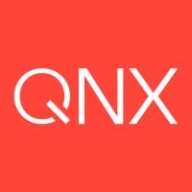

Ubuntu Linux and QNX Neutrino serve different markets, targeting general computing and embedded systems respectively. Ubuntu appears to have an advantage in terms of pricing and support, while QNX Neutrino offers distinct specialized features justifying its higher price for specific applications.
Features: Ubuntu Linux provides a vast software repository, open-source nature, and community-driven support suitable for general-purpose computing. In contrast, QNX Neutrino offers real-time processing capabilities, high reliability, and robustness tailored for mission-critical applications. Ubuntu's adaptability and extensive software ecosystem are key strengths, whereas QNX Neutrino's precision and dependability in embedded environments are noteworthy.
Ease of Deployment and Customer Service: Ubuntu Linux ensures straightforward deployment with broad community and commercial support, easing the installation process. QNX Neutrino focuses on professional service and specialized support, ideal for complex embedded systems. Ubuntu scores higher on broader accessibility, while QNX Neutrino offers specific assistance for complex deployments.
Pricing and ROI: Ubuntu Linux offers a low setup cost due to its open-source licensing, creating an attractive ROI for flexible business needs. QNX Neutrino requires higher initial expenses with licensing, yet provides substantial ROI in critical system environments owing to its unique capabilities. Ubuntu is advantageous in cost-effectiveness for broader use, while QNX Neutrino offers significant value in specialized fields.

QNX Neutrino, a real-time operating system from BlackBerry, delivers robust performance for embedded systems across industries like automotive, aerospace, and telecommunications.
QNX Neutrino is designed for high-performance embedded applications, providing deterministic responses that are essential in systems where timing is critical. Its microkernel architecture ensures maximum security and reliability, making it a trusted choice for developing safety-critical applications. QNX Neutrino's ability to support multitasking and asymmetrical processing adds flexibility, supporting resource utilization across different hardware environments.
What are the key features of QNX Neutrino?In industries like automotive, QNX Neutrino powers complex systems such as Advanced Driver Assistance Systems, ensuring real-time data processing for enhanced safety. In aerospace, it supports flight control systems where reliability and timing precision are crucial. Telecommunications benefit from its scalability and fault resilience, enabling robust network infrastructure.
Ubuntu Linux is an powerful, easy-to-use, customizable, free, and safe open-source operating system. Some of the world’s top tech corporations, like Intel and Microsoft, rely on Ubuntu Linux to power their operations. It is an operating system that is so trusted by the tech community that it comes pre-installed on global computer vendors like HP and Dell. It is therefore little wonder that Ubuntu Desktop is the world’s most widely-used Linux workstation platform.
Ubuntu Linux comes in a variety of derivatives that enable organizations to select the operating system type that will best meet their needs. There are four derivative types and a number of flavors. The derivative types are:
1. Ubuntu Desktop. As indicated by the name, this derivative is specifically designed to run on laptops and desktops. That said, it is a solution that can be and is used to power other hardware-based systems, such as servers and data centers. However, without the addition of software that primes it to serve as a server program, it only functions on desktops and, as a result, only runs applications that are meant for general use. These can include applications like web browsers and multimedia programs. Users can install it through a prompt-driven process that plays out on their graphical user interfaces.
2. Ubuntu Server. This version of Ubuntu differs from Ubuntu Desktop in a number of ways. The first is that, as suggested by the product name, it is designed for use on an organization’s servers. It is for this reason that Ubuntu Server supports applications that are more focused on the operations of the server and the network that it runs. This differs from Ubuntu Desktop in that Desktop is basically only concerned with the device that is running it. Their methods of installation also differ, as Ubuntu Server has no graphical user interface. Instead, it is installed by way of a process-driven menu.
3. Ubuntu Core. Ubuntu Core is a stripped-down version of Linux that is specifically designed to handle embedded device projects.
4. Ubuntu Cloud. The designers of Ubuntu Cloud focused on providing users with a highly secure and versatile operating system that they can run on the public cloud.
Ubuntu Linux Benefits
Some of the ways that organizations can benefit by deploying Ubuntu Linux’s open-source operating system include:
Ubuntu Linux Features
Hardware autoconfiguration. The hardware drivers that users need in order to configure the hardware correctly so that Ubuntu Linux can be properly installed come built -in to the Ubuntu Linux operating system.
Reviews from Real Users
Ubuntu Linux is an operating system that stands out when compared to many of its competitors. Two of its major advantages are the high level of security that it offers applications that run on it and the low level of maintenance that it actually requires system administrators to do once it has been deployed.
Franco P., the founder and CEO of Applied Labs, writes, “When you have this relationship with Linux and you start working with very secure environments, there's less possibility of being directly attacked by a group of hackers. You will lose less data and you will have a more reliable ecosystem.”
The principal cloud architect at a wholesaler and distributor writes, “With Ubuntu Linux, you can set it and forget it. It requires a low amount of administrative overhead.”
We monitor all Operating Systems (OS) for Business reviews to prevent fraudulent reviews and keep review quality high. We do not post reviews by company employees or direct competitors. We validate each review for authenticity via cross-reference with LinkedIn, and personal follow-up with the reviewer when necessary.